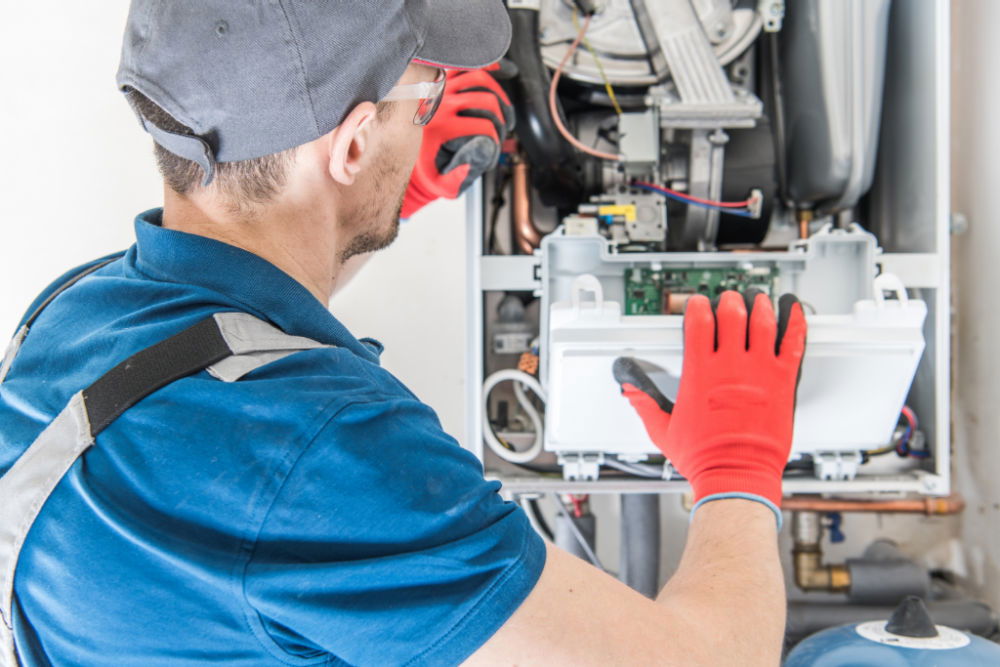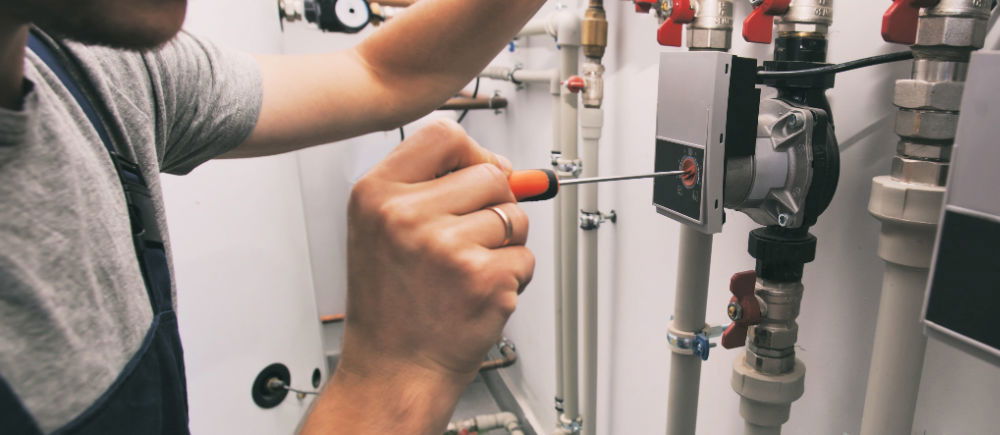Once you encounter problems with your heater, you might think that doing a DIY heater repair is a good solution instead of hiring professionals to do the job for you.
While it’s true that you can repair some simple heater problems, you’ll always need the assistance of professionals who can offer heater repair in Alexandria or in your state. The reason behind it is that trying to do heater repairs on your own may put you at risk.
Keep in mind that every heater has different components and its system can be complex, especially if you don’t have much idea about how the heater works. So, when do you need professionals and can you perform DIY heater repair? Read below to know more.

When Not To DIY Heater Repairs
If you encounter these problems below, contact heater repair specialists right away to avoid any dangerous situations that might affect you and your family members as well as other home appliances.
1) Pilot Light Issues
Occasionally, it’s necessary to consider relight, especially if your pilot light goes out. However, if the furnace is lit, it must stay ignited by the burner. If it isn’t, it may result in poor heating, which can drive your utility bills up.
First and foremost, check to ensure that drafts aren’t the source of the wind that blows out your pilot light. If all your doors and windows are closed, check if it’s your burner that requires cleaning or adjustment.
Since you’re dealing with something that might pose safety hazards, you’ll require the assistance of a heater specialist to check your unit. By doing so, you’ll avoid causing a gas leak, preventing numerous accidents, such as inhaling carbon monoxide.
2) Leakage
Natural gas is both colorless and odorless, but to detect gas leaks, a mercaptan should be added to your gas lines. Once combined, mercaptan may cause the gas to have a sulfuric smell or rotting gas. If you notice it, shut off your unit’s gas lines immediately. Leaking gas should be taken seriously.
3) Noise
Other noises are innocent and you could expect them. However, there are some sounds that indicate something worse.
If you’re hearing rattling noises, that may be a sign that your blower wheel isn’t aligned properly, has a loose screw, or dirty. This noise isn’t dangerous and likely something you may do on your own. But, letting it go on for too long may cause damage in the long run. So, make sure to call a heater repair expert to fix this issue immediately.

When To Consider DIY Heater Repairs
There are ways you can troubleshoot your heater to see if the problems are something you can address. Just like doing some essential home maintenance, make sure to keep safety in mind when you do DIY heater repairs.
1) Filter Change
If your filter gets dirty, it blocks clean air from flowing through your home, which can result in a chilly environment. Sometimes, it means that it’ll turn on, but it won’t stay on long enough to provide you the warmth you need.
If your heater is overcompensating to keep your house warm, it may completely shut down or wear out quickly. To solve this, change your air filter regularly. When changing your filters, turn off your heater’s shut-off fan and switch off your thermostat.
2) Override
Find your fan limit switch and check if the button is pushed in. If so, your heater is in “always-on” mode. If you want to reset your limit switch, make sure to pull out the white button.
3) Fan Isn’t On The Proper Setting
To check if it’s the problem, make sure to set your thermostat to a degree or two below your current room temperature. After that, check after several minutes until it reaches that temperature. If it doesn’t, your heater might be overworking to heat up. This might mean you have problems with your home’s heat distribution.
To solve this, ensure that you set your thermostat to ‘auto’ mode. This will help you save more money from your monthly bills.
Why It’s Much Better To Rely On Professionals Over DIY For Heater Repair?
Undertaking simple heater troubleshooting, like changing air filters, is possible for a lot of homeowners. But when it comes to heater repairs, it’s much safer to hire certified technicians or professionals.
Below are some of the dangers associated when fixing your heater through a DIY approach:
- Risk of carbon monoxide poisoning – Once you get your DIY heater repair wrong, it may result in the release of carbon monoxide in your home. Since it’s an odorless or invisible gas, you won’t notice carbon monoxide leakage until you experience some symptoms, like weakness and chest pain.
- Risk of starting a fire – Heaters can be fire hazards if they don’t get proper maintenance regularly. Once you service a heater on your own without expert knowledge, you might not detect and correct any faulty wiring. You could also miss some gas leaks and overlook the pilot light problems once you do the maintenance yourself, which can increase the risk of fire.
- High repair costs – Repairing your heater problems can be expensive. If you want to avoid this, make sure to rely on professionals for better efficiency and increased safety.
- Losing insurance coverage – If you want to keep your warranty valid, you might have to show proof that you’re protecting your home with professional maintenance. If you need to file warranty claims, you should submit maintenance paperwork from an HVAC company.
If you take the DIY route, you won’t be able to benefit from it because the warranty will be invalidated. To avoid such problems, contact professionals and schedule maintenance for your heater.
- Voiding your heater warranty – Most heater companies provide warranties on their products as long as you get professional repair work. Once you attempt DIY heating repair and something went wrong, it’ll void the warranty and the manufacturer will refuse to cover the cost for repairs. In this case, you’ll need to pay the repair expenses out of your pocket.
Conclusion
If your water heater doesn’t work well, repair and troubleshooting can be hard. This is the reason why it’s always best to hire professionals since they know what they’re doing. They won’t only repair your heaters safely, but you can also rest assured that your heater will run properly and prevent any possible recurring problems.

